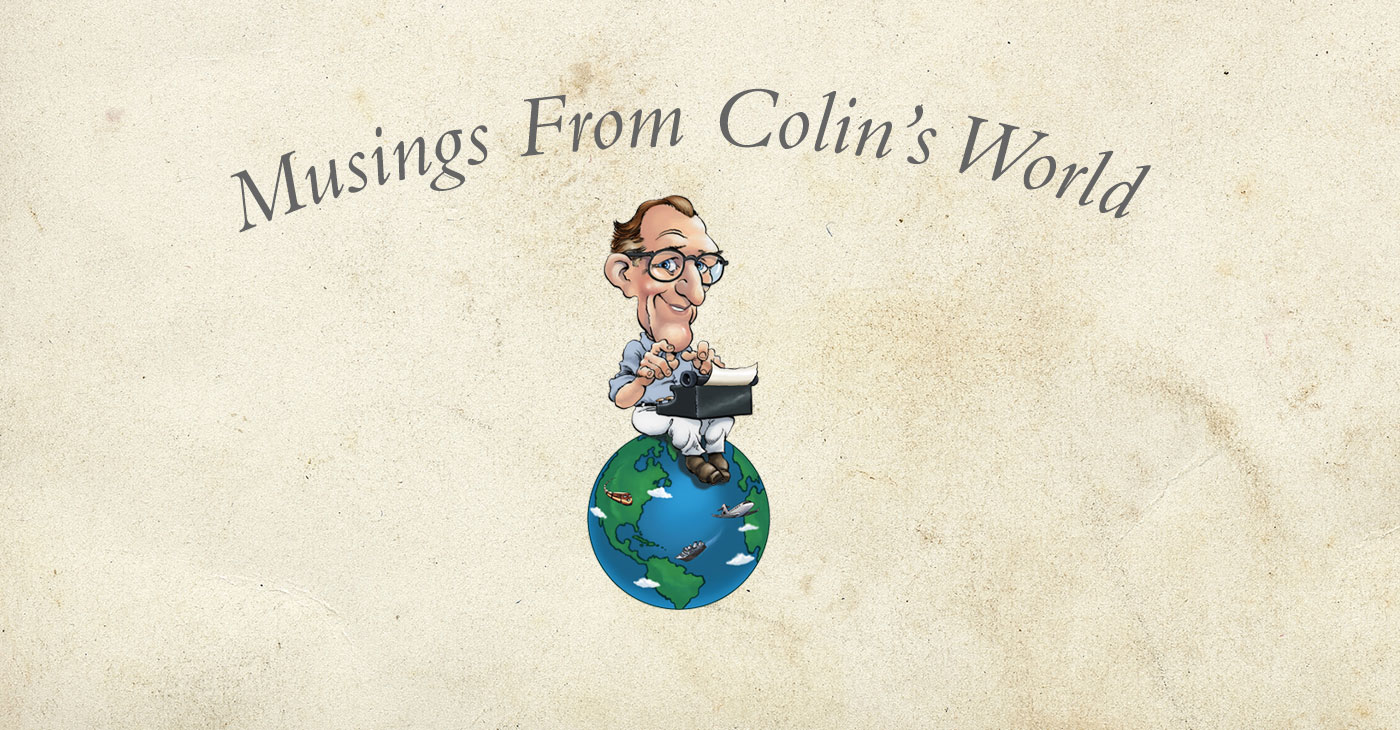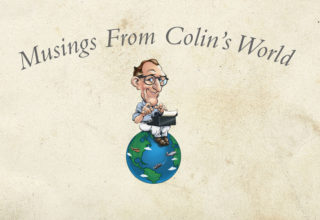To me the word “Danube” always sets off the soundtrack of The Blue Danube waltz by Johann Strauss in my head. I can’t see that word without hearing a little blurb of that soaring melody and the exuberant, widely swinging waltz beat that Strauss popularized. That music almost can’t fail to lift your mood.
The association of the Danube with that music is not a spurious connection because the Danube River is the lifeblood of Vienna. And it was Vienna that gave the world the gift of classical music. When you talk about Vienna, or classical music, you are talking about the Danube, because it was the mother of Vienna, its source of life.
The Mother River
Now that we’re accustomed to the overland transportation of automobiles, airplanes and high-speed rail it’s easy to lose sight of the historical importance of rivers. But it almost cannot be overstated.
Rivers are the mothers of civilization. The Fertile Crescent between the Tigris and Euphrates rivers in Mesopotamia gave birth to the world’s earliest known urban civilization. Practically every great city has had a river that fed and nurtured it. The Indus, Ganges, Nile, Yangtze, Amazon and Mississippi rivers were the primary sources of life for the civilizations that grew on their edges. 
The Danube nourished Vienna and provided its life support system. As the Mississippi gave us the blues and jazz, the Danube gave us classical music.
It’s no wonder Strauss glorified the Danube in so many of his compositions. The Danube was the underlying pulse of Vienna. It must have had something to do with Strauss’s discovery of a new kind of rhythm. The waltz was the swing before Swing.
Vienna’s Music
The classical period began in the mid-1700s with Haydn, who was joined by Mozart and later Beethoven, and many lesser known composers. Almost all of that musical development was centered in Vienna.
When Mozart was a child in Salzburg, and when Beethoven was a child in Bonn, Germany, they looked to Vienna to learn what was happening in the world of music. And they went to Vienna to live and work as soon as they could gain the freedom to leave their hometowns. For aspiring musicians, Vienna was the place to go. Vienna was the heart and the engine of classical music and the Romantic music that grew out of it.
Vienna was the primary center of political power in Europe from 1558 to 1918, first as the capital of the Holy Roman Empire and then as the Austro-Hungarian/Habsburg Empire it evolved into.
The imperial capital was also the home of Schubert, Brahms, Mahler, Bruckner and many other great composers, including of course Strauss, who made the Danube better known as a melody than as a river, at least from my vantage point in America.
Hometown Music Scene
Part of the reason for Vienna’s rise as a musical center was that Emperor Leopold, the ruler from 1658 till 1705, was a composer himself. He kept his own orchestra and was a generous patron of musicians. The aristocratic classes, imitating royalty, began to keep their own orchestras, making Vienna a place of economic opportunity for musicians and drawing them from all over the region.
As the center of world power, commerce and culture, Vienna was highly cosmopolitan, a rich melting pot of cultures, blending eastern, western, northern and southern influences. All this diversity fed into the musical culture and created the hotbed for some of the greatest music ever created.
The cross-fertilization of musical styles that converged as musicians were drawn to Vienna by the prospect of work enriched the musical atmosphere. The music on all levels of society from the streets to the salons to the concert halls was food for the imaginations of the composers of Vienna. They processed it and fed it into musical creations we still listen to today, not only in concert halls, but on the radio, Spotify, cartoons and movies and even our ringtones.
Living Culture
The musical culture that gave rise to classical music still lives in Vienna today. There is continuity from the days of Beethoven when the city was full of musical events, performances, playing sessions the equivalent of today’s jam sessions, small ensembles getting together and trying the latest compositions circulating around town. In Vienna those practices never stopped. They just continued to pass from one musician to another, one generation to another.
It is hard to imagine a more musical city than Vienna. Music pulses through its atmosphere and you don’t have to go into the concert hall to experience it. In Stephansplatz, the plaza surrounding the magnificent St. Stephen’s Cathedral, I watched a blind accordion player work out in a lively two-step rhythm with an infectious melody. He was tall and stout, not young, but his voice was like a choir boy’s. His wife was there to help him receive donations and pack up his things.
It was Saturday night and the stores had been closed by law since noon and would be closed all day Sunday. But the plaza was teeming with activity. With no cars allowed at Stephansplatz, there are no automotive sounds, just the sounds of people resounding in an unpolluted soundscape.
The sounds echoed among the canyons of buildings from many architectural periods. Whenever I was out of hearing range of any street musicians, the voices of the people, walking quickly in the brisk night, hummed in the air creating a joyful din. Even the warning alarm on the subway emitted a harmonious chord.
I attended a performance of local musicians playing Mozart, and it was stunning. Who could match the intimacy these Viennese musicians have with their material, playing it day in and day out in the city of the music’s birth? Their confidence and their authenticity were matched only by their sheer exuberance. I had never before experienced Ccassical music that felt so alive.
Watching Viennese musicians perform classical music in Vienna seemed like the most authentic way to experience it, like listening to jazz played by New Orleans musicians. In Vienna there are concerts every day and night. But aside from the music, there is the street life, which must be experienced to gain a feeling for the cultural life of the city that produced so much great music.
The same richness is reflected in all other aspects of the city as well. Its array of fine arts, history, food, shopping and entertainment offer more possibilities than there could ever be time for.
Keeps On Rollin’
Although for me Vienna is the highlight, it is only one of many amazing places along the Danube. The musical culture was not confined to Vienna, but spread throughout the region and thrived in places like Budapest, as well as Prague and Salzburg, which are not on the Danube but nearby.
At 1,771 miles the Danube is the longest river in Western Europe. In all of Europe only Russia’s Volga is longer. The Danube starts in Germany’s Black Forest and dumps into the Black Sea at its delta in Romania. Its drainage basin includes nine modern countries.
The Danube was nourishing Europe before history. It was navigated by the Greeks. It was on the northern frontiers of the Roman Empire and the Romans set up military bases there, which became the foundations for many of the cities along the Danube. Budapest, Vienna and Belgrade all started as Roman outposts.
For centuries when the Ottoman Empire struggled with the Austrian Empire for power and territory, the Danube was the border between them.
Today you can take a river cruise on the Danube and experience not only Vienna, but also the countryside, and the little towns and villages that cluster near the river’s edge. Traveling by river cruise you can connect with the world before trains and automobiles and gives you a more enduring sense of what the place has been like for millennia.
On that note I bid you adieu. I hope you have your chance to go rolling on the river.
Your humble reporter,
A. Colin Treadwell

